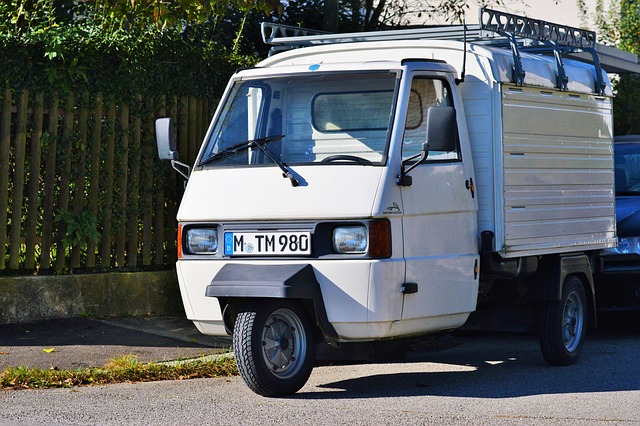Non-owner car insurance is a unique type of policy designed for drivers who don’t own a vehicle but still need liability protection. Whether you frequently rent cars, borrow a friend’s vehicle, or need coverage to meet state requirements, this policy provides essential coverage for certain risks. But what exactly does non-owner car insurance cover, and how does it work? Let’s explore its key features, limitations, and why it’s a valuable option for some drivers.
Understanding Non-Owner Car Insurance
Non-owner car insurance primarily offers liability coverage, which pays for damages and injuries you cause to others in an accident. This type of policy is ideal for drivers who don’t own a car but still need coverage to protect themselves financially.
For an overview of what non-owner car insurance is and who needs it, read here.
Key Coverages in Non-Owner Car Insurance
Non-owner car insurance typically includes the following:
1. Bodily Injury Liability
This coverage pays for medical expenses, lost wages, and legal fees for injuries you cause to others in an accident.
- Example:
If you’re driving a borrowed car and cause an accident that injures another driver, this coverage pays for their hospital bills and rehabilitation costs. - Coverage Limits:
The amount covered depends on your policy’s liability limits, which are often expressed as two numbers (e.g., $50,000/$100,000 for per-person and per-accident bodily injury limits).
2. Property Damage Liability
Property damage liability covers the costs of repairing or replacing another person’s property damaged in an accident you caused.
- Example:
If you hit another vehicle or damage a fence while driving a rented car, this coverage pays for the repairs. - Exclusions:
It does not cover damage to the car you’re driving.
3. Uninsured/Underinsured Motorist Coverage
Some non-owner policies include uninsured/underinsured motorist coverage, which pays for injuries and damages caused by a driver who lacks sufficient insurance.
- Example:
If you’re hit by an uninsured driver, this coverage helps pay for your medical bills and other expenses. - Availability:
This coverage varies by state and insurer, so check your policy for specifics.
4. Medical Payments Coverage (Optional)
Medical payments coverage (MedPay) is an optional add-on that covers your medical expenses, regardless of who is at fault.
- Example:
If you’re injured in an accident while driving a borrowed car, MedPay can cover ambulance fees, hospital stays, and follow-up treatments. - Note:
This coverage is not included in all non-owner policies and may require an additional premium.
What Non-Owner Car Insurance Does Not Cover
While non-owner car insurance provides essential liability coverage, it has significant limitations:
1. Physical Damage to the Vehicle You’re Driving
Non-owner car insurance does not include collision or comprehensive coverage, meaning it won’t pay for:
- Repairs to the car you’re driving in an accident.
- Damage caused by theft, fire, or vandalism.
- Example:
If you crash a rented car, the rental company may hold you responsible for repair costs unless you purchase their collision damage waiver.
For an in-depth look at what’s excluded from non-owner policies, read here.
2. Personal Property Inside the Vehicle
If your personal belongings are stolen from a rented or borrowed car, non-owner car insurance won’t cover their replacement.
3. Business Use of Vehicles
Non-owner policies generally exclude coverage for vehicles used for commercial purposes, such as ridesharing or deliveries.
4. Regularly Borrowed Vehicles
If you frequently borrow the same vehicle, insurers may require you to be listed on the owner’s policy instead of purchasing non-owner insurance.
Why Is Non-Owner Car Insurance Valuable?
Despite its limitations, non-owner car insurance is a valuable option for certain drivers:
- Cost-Effective Liability Protection:
With premiums averaging $200–$500 annually, non-owner car insurance is significantly cheaper than traditional auto insurance. - SR-22 Filings:
If you’re required to file an SR-22 to reinstate your license, non-owner car insurance can fulfill this legal requirement. - Flexibility:
It’s ideal for individuals who occasionally rent cars or borrow vehicles but don’t need full coverage.
Real-Life Example: When Non-Owner Car Insurance Is Essential
Consider Emily, who doesn’t own a car but frequently rents vehicles for weekend trips. During one rental, she accidentally rear-ends another driver, causing $10,000 in property damage and $15,000 in medical expenses. Because Emily has non-owner car insurance with liability limits of $50,000/$100,000, her policy covers these costs, saving her from paying out-of-pocket.
Additional Coverage Options to Consider
If you frequently rent or borrow cars, you may want to supplement your non-owner policy with:
- Rental Car Insurance:
- Offered by rental companies to cover physical damage to their vehicles.
- Personal Umbrella Policy:
- Provides additional liability coverage beyond the limits of your non-owner policy.
- Medical Payments Coverage:
- Ensures you’re covered for injuries in any accident, regardless of fault.
How to Get Non-Owner Car Insurance
Purchasing non-owner car insurance is simple:
- Contact Insurance Providers:
Many major insurers offer non-owner policies. - Provide Your Driving History:
Your premiums will depend on factors like past accidents or traffic violations. - Choose Coverage Limits:
Select liability limits that meet your state’s minimum requirements or your personal financial needs. - Request SR-22 Filing (If Needed):
If required, ask your insurer to file an SR-22 on your behalf.
Non-owner car insurance provides essential liability coverage for drivers who don’t own a vehicle but still need protection. While it has limitations, such as the lack of physical damage coverage, it’s an affordable solution for occasional drivers, frequent renters, and those requiring SR-22 filings. By understanding what it covers and how it works, you can decide if this type of policy is right for you.



